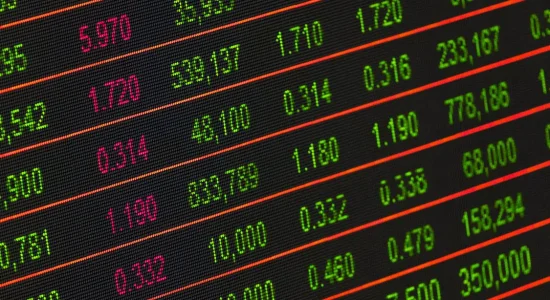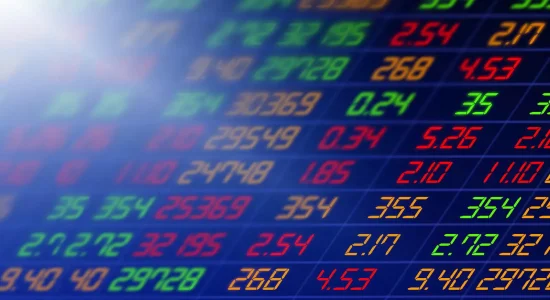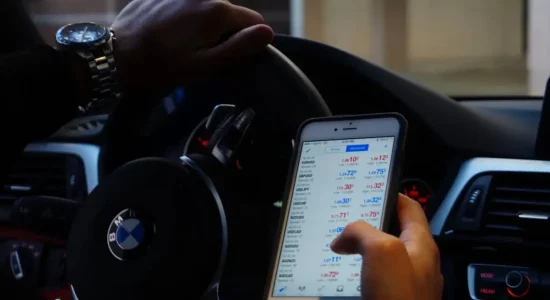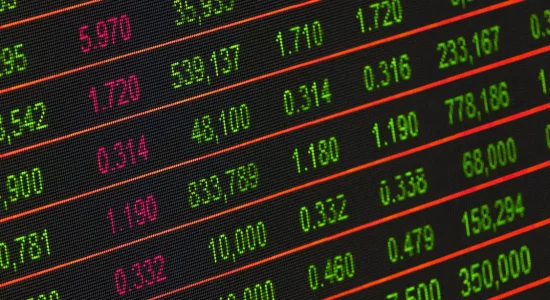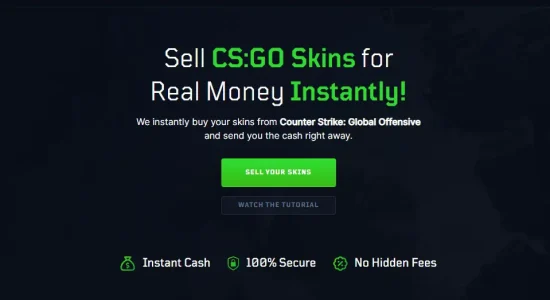It’s easy to accidentally write a check for a much larger amount. It’s important to know what the maximum check that you can write is. Here’s how big a check you can write:
There is no limit to the amount of money that can be written on a check. It can be written for as much as you want to write it for. You can write a check as big as you wish for as long as enough funds are available in your bank account.
Now you know that you’re free to write any amount on your checks. You need to know a few more things before writing a big check such as; how to write a big check, can you write yourself a large check, etc.
In this article, I’m going to explain how you can write large checks for yourself or for someone else, and the estimated time it takes to clear those checks.
Read more to find out!
How to Write Big Checks?

Here are steps you should follow to write big checks accurately:
- Make sure you have enough money in your account.
- Fill out the date area on the top right corner of the check.
- Write the name of the person or company you’re writing the check for.
- Write the large amount you would like to transfer.
- Add your signature on the signature area.
That’s it! — You’re done writing your big check and it can be presented for payment…
Let’s discuss each step in detail.
#1 Having Sufficient Funds
The most obvious requirement for writing any sort of check would be to make sure that I have the amount I’m paying off. And in the light of accidentally forgetting that I don’t have enough and issuing one anyway, well then, I can say goodbye to the remainder of my savings.
The most reliable and simplest way to make sure that I have, at least, the amount I want to give would be to go to my bank. When I do so, I can visit the bank in person and ask for the funds in my account.
This would leave no room for suspicion or doubt as I can be fully aware of how little or much I have at the moment. Finding the amount I have before writing a check saves me from the blunder of accidentally issuing a fated bounced check.
What Would Happen If You Don’t Have Enough Funds?
If you don’t have enough money to issue a check and do so anyway, this will incline the bank to bounce your check. On top of that, they will also issue a fine on you. And may even take strict measures such as closing your account if the bounces are too often.
And if matters couldn’t possibly get worse a returned deposited item fee is also levied on the drawee. This is also put on the original writer of the check to pay. Albeit only costing around $30-$45 this still is an extra cost you will have to cover.
After I’ve made sure that I have the amount I mean to write off, I can start to fill in the wanted information.
Before you start writing a check, make sure that you have a working pen; preferably with blue or black ink.
#2 Writing Date Of Issuance And Cashing Date
After I’ve set my pen with me, I can start by writing out the date of issuance and the date it can be cashed at.
Ideally, I write the date when I am filling out the check as it helps keep financial records. I also happen to use the post-dated option however that isn’t always as helpful as it seems.
#3 Drawer/Drawee And Reason Of Issuance
If I feel necessary, I also sometimes write the reason for issuing a check along with the organization’s name.
In addition to this, I can also state the bank from where the cash can be obtained along with the magnetic ink character recognition (MICR) information copied from the bottom of the check. This indicates the account number from which the money should be deducted.
After I’ve written these, I note down my name and the name of the payee (for whom I’m writing the check).
#4 Writing The Amount In Letters
Usually, the struggle arises in writing the amount I plan on giving. Writing a check would probably be the only time where I’d have to write out the numbers in word format.
And even so, there are a few technicalities that I am wary of.
For starters, I have to use formal language when addressing the amount. Writing ‘twelve hundred’ or ‘forty and a half thousand’ is seen as incorrect and I’d have to rewrite them again in the formal, ‘one thousand two hundred’, format.
Aside from this, I make sure I use hyphens when writing two-digit numbers and write decimal numerals as fractions. For example; three thousand five hundred fifty and 78/100. This indicates the exact value that needs to be cashed, leaving no ambiguity.
Lastly, I avoid using the word ‘and’ after whole numbers such as thousands or hundreds. Except, only use this when the amount is in decimals such as the example I previously mentioned.
#5 Sealing It With My Signature
After I’ve written down all the required information and written the receiving value I can seal the deal by jotting down my signature. All I have to do is sign the same signature I usually have on all important documentation.
Homogeneity in the signature matters a lot so I make sure there isn’t a stark difference from my last sign. With the final approval, I can now submit my check to the party of issuance and they may withdraw the amount.
Aftermath Precautions
After I’ve officially issued my check the best practice I follow is to write down when and why I issued it in a check register. This would keep a routine order of how many checks I have written and why I did so.
How I keep track of it may not be the same as yours so it’s entirely up to each person. Whether you prefer excel sheets or the old-fashioned way, keeping a diary, you must make sure that you jot this down immediately after you’ve made a transaction.
Waiting until I’ve made a payment a couple of times makes it less likely to remember how much I spent and how much I have. Also waiting until the cash is withdrawn from my account can take a while, so the most effective way would be, in my opinion, is to record the information when it’s still new.
Post Issuance Tips for Large Checks
Just like I take some steps to be safe after I issue a check, I ensure the same wariness is applied before I write off one.
For instance, I ask myself if I need to write a check for the payment I’m about to make. This is because writing checks can be arduous and it could save me the effort of writing one.
Other than this, I also look for daily alternatives like using a debit or credit card instead of writing off checks. I also make direct bank transfers and automated payments which require zero effort and keep a record of my transaction history.
What Happens When You Write a Check Over $10000?

When you write a check over $10,000, it won’t be flagged by your bank as long as the transaction seems to be normal. Some banks have strict internal rules and monitor suspicious activities more actively.
Banks are legally required by law to look for and obliged to report any suspicious behavior which might indicate a crime is taking place – such as money laundering, terrorist finance, etc.
Banks are also required to report any transaction of over $10,000 to the Internal Revenue Service (IRS).
However, if you made a check for a legitimate purpose, the bank will not likely flag it.
Flagging may depend on several factors such as:
- Who the check is to
- What is the normal behavior on the account
- Type of business the check is written to
For example, if you’re paying your $10,000 mortgage every month, it’s less likely to be flagged as compared to a sudden $10,000 transaction for an unknown project.
If you start writing large checks to certain individuals or entities that are involved in gambling, casinos, check cashing – whether out of the blue or on a schedule – this may be considered suspicious. (Make sure to know your payee before making a check for someone else.)
Banks spend millions of dollars per year on systems specifically designed to determine suspicious trends – in other words, they have rules and intelligence set up for detecting potential money laundering and white-collar crime.
Sometimes, banks may flag someone wrongly for making checks of over $10,000, and that’s completely normal as long as your transaction is valid, authorized, and legal.
Why Is Your Bank Not Accepting a Large Check?

Some banks cannot handle large check transactions without prior notice. If your bank isn’t accepting a large check. they may not have enough funds on-site to clear the amount. The bank may also not want to risk that the money could be used for illegal purposes.
For example, a bank may have $100,000/day available for customer transactions. It will not be willing to hand most or all of it to a single customer and tell every next customer that the bank is out of cash.
These are all legitimate reasons why a bank will not approve a particularly large check, and you should be aware of this.
Alternatively, go to the main branch or another bank that is large enough to hold your big checks.
How Long Do Banks Hold Large Checks?
Banks tend to hold large checks for a maximum of five business days. But they may extend the holding period to 10 business days for reviewing large transactions if the amount of check exceeds $1500.
Normally, you will gain access to the funds within a couple of business days if you submitted a regular-sized check. However, large checks can take longer because they need more time for clearances and processing.
The duration for clearance of a large check depends upon:
- Your account’s average balance.
- Your account’s available balance.
- Account’s past transactions.
- Type of the check you’re trying to cash.
- Age of your bank account.
- Incidents of overdrafts.
Some banks may release funds gradually in case of cashing large checks.
If you want to know the exact time of large checks clearance, visiting your bank and speaking with a Banking Relationship Manager or an Investment Manager would be the better option.
Since Saturdays and Sundays are non-business days, the remaining funds available may take longer to clear.
Can I Write Myself a Large Check?

You can write yourself a check as large as you want to and it’s completely legal. There are no maximum limits on personal checks and you can write any amount as long as it’s present in your bank account.
It’s never a good option to write a check to yourself if you have no money in the bank account. Doing so will bounce the check and incur a fee that you wouldn’t want to pay for no reason.
Be sure to keep a record of all of your checks, so you don’t get into trouble with the bank or with tax collectors.
Ending Word
Now that I have finally reached a consensus on how to write big checks, I feel you can now begin writing your first check.
It is important to remember that, regardless of the numerous complications writing a check can have, it is still one of the most significant forms of payment.
This is because of the dozens of background checks and authentication processes one must endure just to send a thousand-dollar check.
Upholding Its Importance
Because of this, despite the tough process it undergoes, the prestige of checks remains untouched. Though we’ve progressed past the need to use checks in our daily lives; big thanks to debit cards and bank transfers, there still are various occasions where a check is the most viable option.
In the modern world, the only time you’re most likely to come across checks is in lottery shows and movies. Not quite obsolete yet, knowing what you’re going to have to go through before writing a check can save you from any sort of emotional turmoil you may go through.
So to answer the question. Every aspect of writing a check depends solely on you and your comfort zone. From transfer options to make sure no one else can get hold of your funds, you can structure a check that best suits your level of insurance.


